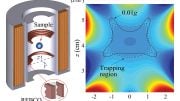
A survey by The BMJ highlights significant disparities in access to lung diagnostic tests in England’s deprived areas, leading to delayed treatment and health deterioration in patients with respiratory conditions. The article emphasizes the urgent need for NHS England and the government to address this healthcare crisis by ensuring equitable distribution of diagnostic services like spirometry.
The survey reveals that the poorest regions are most severely impacted by the ‘postcode lottery’ in diagnostic services, and the report cautions about the fatal outcomes resulting from delayed diagnoses and access to medical care.
Patients living in England’s most impoverished regions, where respiratory illnesses such as chronic lung disease (COPD) and asthma are widespread, face significant challenges in accessing essential diagnostic tests for confirming their conditions, according to a survey recently published in The BMJ.
The Silent Healthcare Scandal
Despite NHS England’s promise of access via Community Diagnostic Centres (CDCs), journalist Sally Howard speaks to GPs in some of the worst affected areas who say having no means of referring patients for lung function tests is “troubling” and “a silent scandal.”
And last month, a report by the charity Asthma + Lung UK warned that without timely and accurate diagnosis, people with lung conditions do not get treatment for their symptoms, suffer acute and long-term deterioration, and die early.
Lung conditions are the third biggest killer in the UK. The government’s Major Conditions Strategy highlights the need for early and accurate diagnoses of lung conditions, and one of the aims of NHS England’s Core20PLUS5 initiative is to “narrow health inequalities” in chronic respiratory disease.
Diagnostic Service Disparities
A 2019 NICE guideline update also states that spirometry (a lung function test) should be performed for the diagnosis of COPD and asthma and FeNO testing (an airway inflammation test) for the diagnosis of asthma.
But there is currently no central data available on spirometry provision.
In an attempt to address this, The BMJ requested information on access to spirometry from England’s 42 integrated care boards (ICBs). It also looked at information the boards had put into the public domain around access to spirometry from general practice and corroborated some ICBs’ depiction of the availability of diagnostics in their regions by speaking with local GPs.
Of the 25 ICBs that responded, The BMJ found that provision was patchy and the full picture unclear in West Yorkshire and that spirometry was no longer commissioned in Hampshire and the Isle of Wight.
Humber and North Yorkshire ICB told the BMJ that it “did not commission spirometry as a local enhanced service” and did not have a clear picture of provision in its region. Derby and Derbyshire ICB also could not give a picture of availability in its area, but a Derbyshire-based GP said that she has no access to services to which to refer her patients.
In Devon, spirometry is not available for some patients, while in Cornwall, a region with high levels of deprivation and long waiting lists for lung diagnosis, the ICB does not commission spirometry and cannot give a clear picture of provision, although it says there is some coverage by CDCs.
Geographic Inequalities in Healthcare
The BMJ also found disparities in access to diagnostic services between more and less deprived areas within ICBs, including in London.
Of the ICBs that didn’t respond to the BMJ’s request for information, the picture is bleak in Rotherham and Doncaster, two regions with high historic levels of diagnosis of COPD due to large communities of former miners.
In contrast, areas with good respiratory diagnostic availability included NHS Surrey Heartlands ICB, Nottingham and Nottinghamshire ICB, and Buckinghamshire, Oxfordshire, and Berkshire West ICB.
The Need for Urgent Action
Asthma + Lung UK said that the lack of clear data around spirometry gaps, as highlighted by The BMJ’s findings, “needs to be addressed urgently by ICBs” so they can plan services and make sure workforces are adequately trained for current and future demand on their services. Crucial in the charity’s view is for NHS England to provide funding for quality-assured spirometry at a primary care level, incentivizing spirometry as a paid-for diagnostic test within the GP contract.
However, London GP Rammya Mathew worries about the nation’s many undiagnosed, and the stress on overstretched GPs, of the crisis in respiratory diagnostics. “In many parts of the country, spirometry access is sparse or even non-existent,” she says. “This has been the case for at least three years now and it’s high time this was prioritized by the government and NHS England.”
Mathew is crossing her fingers that a new CDC at Willesden in Northwest London, in the process of being built, will accept referrals from her practice when it opens.
Meanwhile, in Doncaster, GP Dean Eggitt has negotiated off-label diagnostics for the patients who are most at risk of COPD, which he calls “a sticking plaster tactic” in the face of an emergency. What we need, he argues, “is to commission spirometry, which is needed here and now for patients who will die of heart failure as their lungs are rotting.”
Reference: ““Silent scandal” of missing lung diagnostics in England’s most deprived areas—where respiratory disease is most prevalent” by Sally Howard, 27 September 2023, BMJ.
DOI: 10.1136/bmj.p2140









Welcome so socialized medicine. If you are not a valuable citizen, then you don’t get the valuable treatment. Sorry.
This reminds me of the corrupt treatment of Dr. Alice Stewart, Epidemiologist, “The Woman Who Knew Too Much” when she wouldn’t stop her research & warnings on effects of radiation exposures to pregnant women from newly implemented X-Ray industry equipment by UK authorities in the 1950s – to the detriment of Humanity. And – is it time for all reported medical problems to be released to the public, anonymously, by postal codes? http://www.vidocq.pro